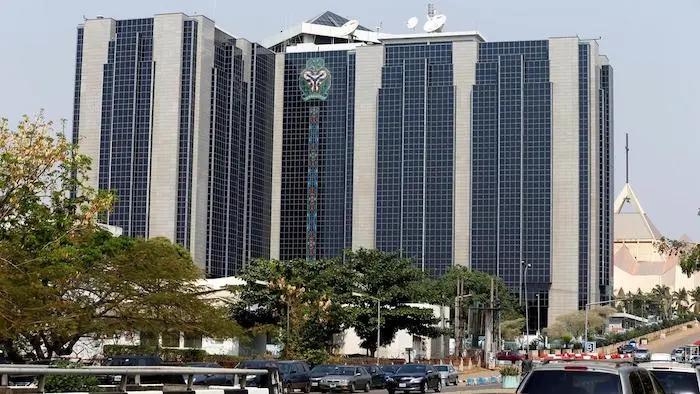While headline inflation in the West African nation of Nigeria deteriorated in October, the Central Bank of Nigeria(CBN) has decided to postpone an important meeting in order to decide interest rates. October’s headline inflation rate of 27% was the highest it’s been in 18 years, according to data released by the country’s Bureau of Statistics.
The meeting of the Monetary Policy Committee (MPC), which had been set for Monday and Tuesday, has been postponed to a date that has not yet been determined. Many of the experts were caught off guard by the decision to postpone the conference, given that the previous meeting in September was similarly postponed for no apparent reason. At that time, the CBN assured everyone that fresh dates would be communicated in “due time.”
Olayemi Cardoso’s appointment as governor of the Central Bank of Nigeria (CBN) was given the green light by the Senate in September, and the CBN was scheduled to hold its first rates meeting under his leadership this week. The bank increased interest rates twice while Folashodun Shonubi was serving as acting governor of the Central Bank of Nigeria (CBN), but it appears that Olayemi Cardoso will delay making that choice.
A financial markets expert who talked to a media outlet on the condition of anonymity questioned the bank’s decision to cancel today’s meeting. The analyst cited “poor communication” as a constant problem in the nation’s efforts to recruit international investors. TechCabal has agreed to keep the analyst’s identity a secret.
The CBN did not provide any information regarding when the next meeting of the MPC will take place.
Read also: CBN announces DMBs who distort images, data will pay penalties
CBN hits N2.41 trillion deposits
Deposit Money Banks (DMBs) and Merchant Banks in Nigeria have together deposited a staggering N2.41 trillion with the Central Bank of Nigeria (CBN) over the course of the past 13 days, contributing to the surplus liquidity that was caused by injections from the Federation Account Allocation Committee (FAAC).
The rush that the banks are making to deposit funds with the CBN is an effort to comply with the regulation on Capital Adequacy Ratio (CAR) that was issued by the apex bank.
As of this point in November 2023, DMBs and merchant banks have deposited a total of N2.41 trillion through the Standing Deposit Facility (SDF) of the Central Bank of Nigeria (CBN), rather than lending to the real economy.
An overnight deposit facility known as an SDF enables DMBs and merchant banks to park surplus liquidity (money) with the CBN and receive interest on the funds deposited during that period.
According to the financial data that was made public by the CBN, DMBs and merchant banks have borrowed a total of N377.71 billion from the CBN over the course of the last 13 days using the Standing Lending Facility (SLF).
According to the information that was acquired, the enhanced liquidity position in the banking sector is influenced by injections of approximately N903.48 billion in September via the Federation Account Allocation Committee (FAAC), N1.80trillion in August via the FAAC, and N1.89trillion in July 2023 via the FAAC to the three different levels of government.
The Money Supply (M3) rose to N67.18 trillion as of September 2023, up from N49.33 trillion in September 2022. This increase was brought about by the extra liquidity.
M3 is a measure of the money supply that also includes bigger liquid assets, short-term repurchase agreements (repo), institutional money market funds, and longer-term deposits with major financial institutions.
Following the increase in the policy rate by 50 basis points to 18.75% in June 2023, the applicable rates for the SDF and SLF have also raised by the same amount to 11.50% and 19.50%, respectively. This was done in response to the increase.
The asymmetric corridor around the MPR was reduced from +100/-700 basis points to +100/-300 basis points by a unanimous vote of the Monetary Policy Committee of the CBN.
To counteract the steadily increasing rate of inflation (which had reached 27.33 % by October 2023), the Central Bank has, since May 2022, kept its monetary policy position firmly in the “hawkish” camp.
CBN introduces FX price verification system portal for importers
Causes of inflation
Because of inflation, money saved today will have a decreasing amount of purchasing power in the future. This might be a cause for concern. Inflation eats away at the purchasing power of consumers and can even make it more difficult for them to save for retirement. If an investor gained 5% from investments in stocks and bonds, but the rate of inflation was 3%, then the investor only earned 2% in actual terms from their investments. In this essay, we will investigate the underlying reasons that contribute to inflation, as well as the many types of inflation and the beneficiaries of inflation.
The rate at which prices of goods and services are going up in an economy is what economists refer to as inflation. When prices rise as a result of increases in the costs of production, such as increases in wages and raw materials, this can give birth to inflation.
As a result of consumers being prepared to pay more for goods and services, inflation can be caused when there is a surge in demand for goods and services. Some businesses are able to increase their profits thanks to inflation since they are able to charge higher prices for their goods as a direct result of the increased demand for those commodities.




